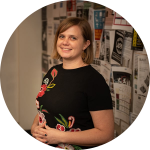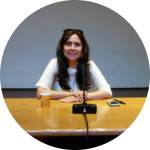This course will bring together the expertise of faculty from the University of Pittsburgh and Carnegie Mellon University, as well as practitioners to provide a multidisciplinary approach to the interconnections between health and sustainability, the role cities can have on climate change, low-emission growth and clean energy, the importance of access to resources, the need for sustainable transportation, and the practices of sustainable consumption, among others.
*Please check the materials tab for the Syllabus*





Pre-Reads: Prior to class, students should review the entire syllabus and its policies, the global city analysis paper assignment and rubric, and all of the posted student global city analysis paper examples.
Pre-Class Brainstorm: Prior to class, students should brainstorm various sustainability issues surrounding one of the cities in the list provided on Canvas. Students should do a small amount of research on the selected city and sustainability issues they’ve brainstormed.
Friday, Feb. 5th
5:00 PM - 5:15 PM: Welcome Remarks and Overview of Course
Session 1 – 5:15 PM-6:30 PM~From Global to Local: Unlocking Sustainable Communities: Mark Chambers, Director of Mayor’s Office of Sustainability, New York City and Alexandra Hiniker, Executive Fellow of Sustainability Initiatives, Office of the Provost, Carnegie Mellon University
Session 2 – 6:45 PM-8:00 PM: Global City Analysis Assignment Overview
Saturday, Feb. 6th
Note: Students arriving more than 5 minutes late will not be assigned to a breakout group nor be able to complete the assignment sheet associated with this activity. Please arrive on time to be assigned a group and case study.
Session 3 – 8:30 AM - 9:45 AM: Group Activity
Session 4 – 10:00 AM - 11:15 AM: Roberta Mendonça De Carvalho, Lecturer of Urban Studies, University of Pittsburgh
Session 5 – 11:30 AM - 12:45 PM: Nina Baird, Assistant Teaching Professor in the School of Architecture and Co-Chair of Carnegie Mellon’s Green Practices Committee, Carnegie Mellon University
LUNCH 1:00PM-2:15PM
Pre-Class Work: Prior to the Saturday afternoon session, students should brainstorm various sustainability issues surrounding one of the cities in the list provided on Canvas. Students should do a small amount of research on the selected city and sustainability issues they’ve brainstormed. Without this work, this assignment is going to be very difficult to complete.
Session 6 – 2:15 PM - 3:30 PM: Melissa Bilec, Associate Professor, Department of Civil and Environmental Engineering and Roberta A. Luxbacher Faculty Fellow, University of Pittsburgh
Session 7 – 3:45 PM - 5:00 PM: Group Activity
Note: Students arriving more than 5 minutes late will not be assigned to a breakout group nor be able to complete the assignment sheet associated with this activity. Please arrive on time to be assigned a group and case study.
Session 8 – 5:15 PM - 6:30 PM: Workshop
Sunday, Feb. 7th
Note: Students arriving more than 5 minutes late will not be assigned to a breakout group nor be able to complete the assignment sheet associated with this activity. Please arrive on time to be assigned a group and case study.
Pre-Session Work: Prior to this session, you should have finalized your city and sustainability issue. If you haven’t, this worksheet will be very difficult to complete. You should be using the part 2 sessions of the speaker worksheets to complete this as well.
Session 9 – 8:30 AM - 9:45 AM: Tuba Inal-Cekic, Associate Professor and Einstein Fellow, Department of Social Sciences, Humboldt University of Berlin
Session 10 – 10:00 AM - 12:00 PM: Practicing Community Discussions on Sustainability Approaches: A Case Study Activity
Session 11 – 12:15 PM - 1:00 PM: Comparing Disciplines and Perspectives
Sponsored by: University of Pittsburgh's Global Studies Center, Carnegie Mellon University

